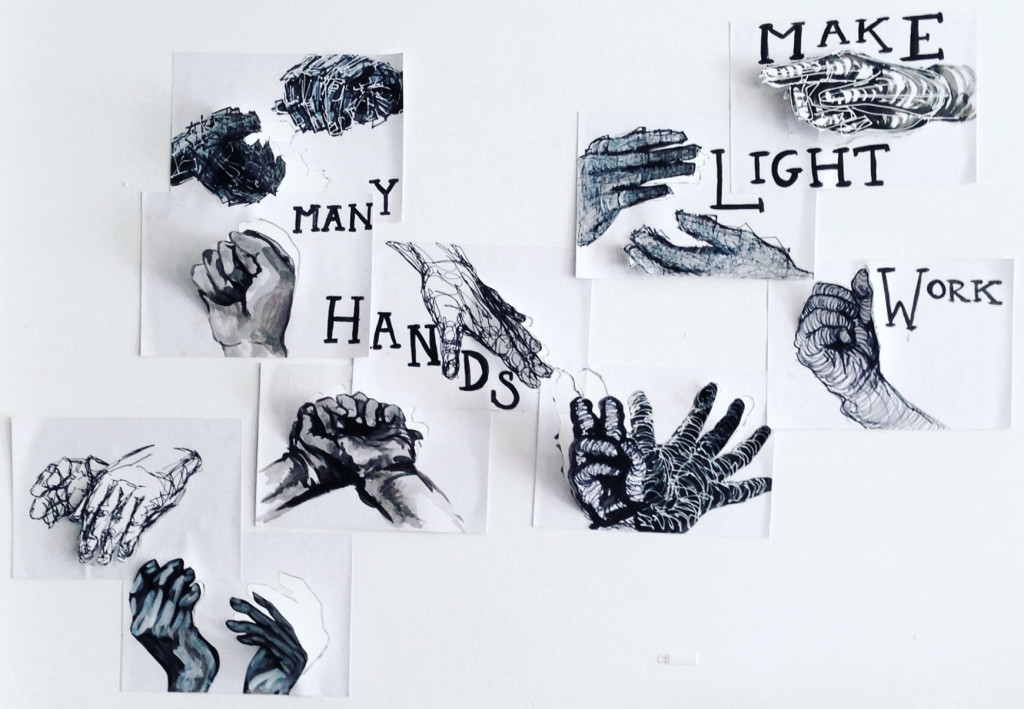The future is arguably the defining concern of progressive politics. We strive for a better future, and believe the present is insufficient. It is fundamentally conservative to suggest that how it is now is as good as it will ever be. However, politics at both a micro and macro scale show that our present is afflicted with serious problems. The rise of the alt-right all over the world ushers in the loss of hard fought for progressive norms and laws. Meanwhile growing concerns about the future of the welfare state, housing affordability and even the very existence of our planet show that another future must be possible.
The question is then what future? Justine Poon’s article on nostalgia and Trumpism highlights the dangers of the narratives we tell ourselves. The nostalgia for the America that once was great is also nostalgia for a much more exclusionary American; a desire for an America of the past with more manufacturing jobs but also more sexism racism, homophobia and so on. While Justine’s piece explicitly concerns nostalgia, which is backwards looking, her analysis can be turned to progressive visions. The progressive visions of a better world can include violence and exclusion of ‘The Other.’ What matters is the narrative we have, the story we tell about a better world.
Nuria Khasim Yu’s piece brings out this tension. It is a reflection on the cultural trauma of her Uyghur people. Like so many in her generation, she has grown up not knowing her Yurt, ‘ripped from (her) motherland for her own survival’. Still in high school, Nuria captures the personal, inextricably tied to the political, as she struggles to reconcile her conflicting identities. Nuria’s piece highlights the complexities facing discussion of a better future; ostensibly she has left her homeland for a better future, but she must confront the cultural alienation this produces.
Why does thinking about the future matter? Mia Stone’s article in this edition presents an argument for considering future generations as proper moral entities – ones we are responsible to and for. She surveys Western philosophical perspectives about what these obligations are and where they come from. Such a discussion philosophically grounds discussions of ‘sustainability’ – commonly conceptualised as meeting the needs of the current generation without compromising the capacity of future generations to meet their needs.
Given that we have a moral impetus to consider the future, we move to consider the notion of the future on its own terms. Striking a historicist tone, Galvin Chia’s article and accompanying infographic illustrate how science-fiction films of the last four decades have depicted the future in different ways. ‘Archaeologies of the Future’ is as much an exploration of the last forty years, interpreting the different science fiction sub-genres of each decade in order to excavate truths about past contexts and their experience of capitalism.
The oft cited and misattributed quote, ‘It is easier to imagine the end of the world than the end of capitalism,’ highlights the stakes of this edition of Demos. The paradox here is that our failure to imagine a different future may well result in there being no future.
Claire Gardner, in an interview with Odette Shenfield, highlights how the thought that our future will bring the apocalypse can result in activists working towards a better future. This inverts the above quote; the ease with which we imagine the end of the world compels some towards the much more difficult task of imagining a different future (be it the end of capitalism or something else). Yet, she highlights that this is psychologically unusual, questioning whether activists need a more positive vision and a sense of momentum to motivate more people to act.
An Anonymous poet captures how even personal relationships become marred by our inability to imagine a different future. Their poem speaks of the tension of relational love and the moment where this love may not be enough to overcome irreconcilable world views. They write that ‘at times, the stress can be so powerful’ that is can be impossible to see a future free from it.
The difficulty of picturing a different future, however, is not the same as its impossibility. Siobhan Neyland’s brave, yet grounded, piece takes on this task of imaging a different future, questioning whether capitalism is ‘natural’. Her article articulates some of capitalism’s contradictions and presents a vision of alternative economies of the future, explaining what many academics have struggled to express in clear, uncomplicated language for decades. New economies, Neyland suggests, are run by the people, for the people.
As an example of these new economies, Chloe Tredrea’s photography, depicting her father in his share house. Her black and white film photography combines the everyday with a more sombre feeling, inviting the viewer to reconsider our taken-for-granted conceptions of home. Chloe’s photography reminds us of the personal element at stake in considering the question of futures. All questions of our obligations to future generations, the future of the planet and the future of our economic system deeply affect us at the everyday level.
When Francis Fukuyama invoked the notion of the end of history at the close of the Cold War, he was indicating that current world order would be the final one – there would be no more great upheavals. The task of the collected pieces here is to show that another future is possible, that history has not ended. For if things are to continue as they are, we will not have the end of history, but rather the end of the future, consumed by the rise of hate mongering world leaders and the already visible effects of climate change. Alternative futures must be possible; another future is possible.

